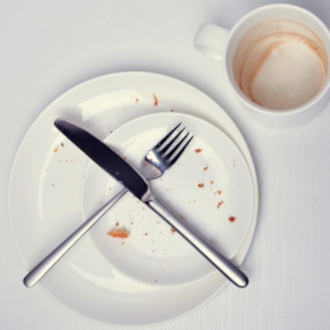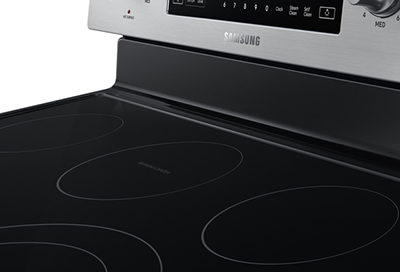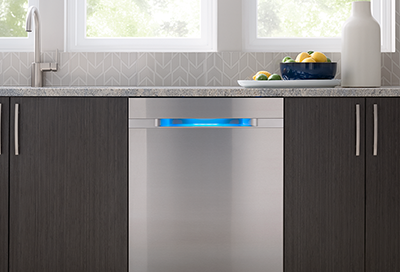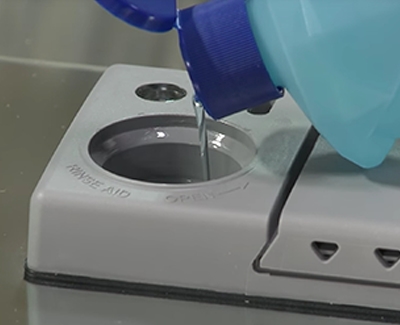Dishwasher cycle ends before dishes are clean
The main function of your dishwasher is to wash dishes, so when it fails to do even that, it can be pretty frustrating. Perhaps your cycle stopped before you expected it to, or even if it ran full length, pulling dishes out of a dishwasher just to see that they're still dirty is the worst. Fortunately we have some guidance to help you get the best from your dishwasher.

Dishwasher cycle ends before dishes are clean
- Did the dishwasher lose power? check out: Dishwasher will not turn on.
- Is there an error code or blinking lights? Check those issues first.
Do the dishes have white film on them, or food particles?
The way we'll tackle this depends on what kind of "dirty" your dishes are. Pick the closest option to continue.
White film left on dishes
Perform a lemon juice test.
With some lemon juice (or distilled white vinegar), try to wipe the film away on both the inside and the outside of a glass.
The white film came off with the lemon juice
If the film comes off, it is being caused by hard water. Hard water is full of minerals like calcium and magnesium. If this residue is on your dishes, it's also on the inside walls and other components of the dishwasher. This can be prevented by:
- Ideally, purchasing and installing a water softener.
Note: Don't overcompensate and soften your water too much or you might etch your dishes (see the "white film doesn't come off" section.) The water should not be softer than 7 gpg.
- Using a good dishwasher detergent (like Finish Quantum or Cascade Platinum Plus). If your detergent isn't dispensing, see our guide for troubleshooting.
- Placing a cup of distilled white vinegar on the upper rack and then running a hot water cycle. Doing this about once a month will help keep the dishwasher clean.
- Using a rinse aid like Cascade or Jet Dry to reduce hard water film building up on the dishes.
- Using the Self Clean cycle to remove hard water mineral deposits from inside the dishwasher. This can be done with a dishwasher cleaner, vinegar, or a citric acid powder. Do not add detergent for the Self Clean cycle. For more details, please see our guide for how to clean your dishwasher.
Your dishes can still get clean with hard water, but you'll have to clean the dishwasher more often.
If you want more information about hard water, including how to test for it, visit USGS hard water and alkalinity or your local water provider's website.
The white film doesn't come off
If the residue doesn't come off, this is the result of etching. Etching is cause by a combination of using too much detergent, too much hot water, or water softeners. Unfortunately, etching is permanent and cannot be reversed.
Going forward, though, you can prevent it from happening to any more of your dishes by:
- Not pre-rinsing your dishes.
- Reducing the amount of detergent being used.
- Keeping the water temperature between 120-149° F.
- Not using soft water or water softeners, or limiting their use.
Food particles left on dishes
Is some detergent still in the dispenser after the cycle?
If your dishwasher isn't dispensing or dissolving your detergent, it will be that much harder for your dishwasher to clean any dishes. If you notice that the detergent is having trouble, take care of that issue first. If that doesn't resolve your dirty dishes issue, come back here.
Never pre-rinse the dishes.
Pick the right cycle for the job.
- Heavy is best for tough to clean items like pots, pans, and casserole dishes.
- Normal is for everyday use.
- Auto makes sure dishes are cleaned with minimal water and energy usage.
Load the dishwasher properly.
Use the recommended amount of detergent.
Using too much or too little detergent can actually lead to issues with your dishwasher and leave an ugly white film behind.
If you find that you're using the manufacturer's recommended amount of detergent, but aren't seeing the results you'd like, try a competing brand.
Check the temperature of the water supply.
Clean the dishwasher.
Request service.



Contact Samsung Support




